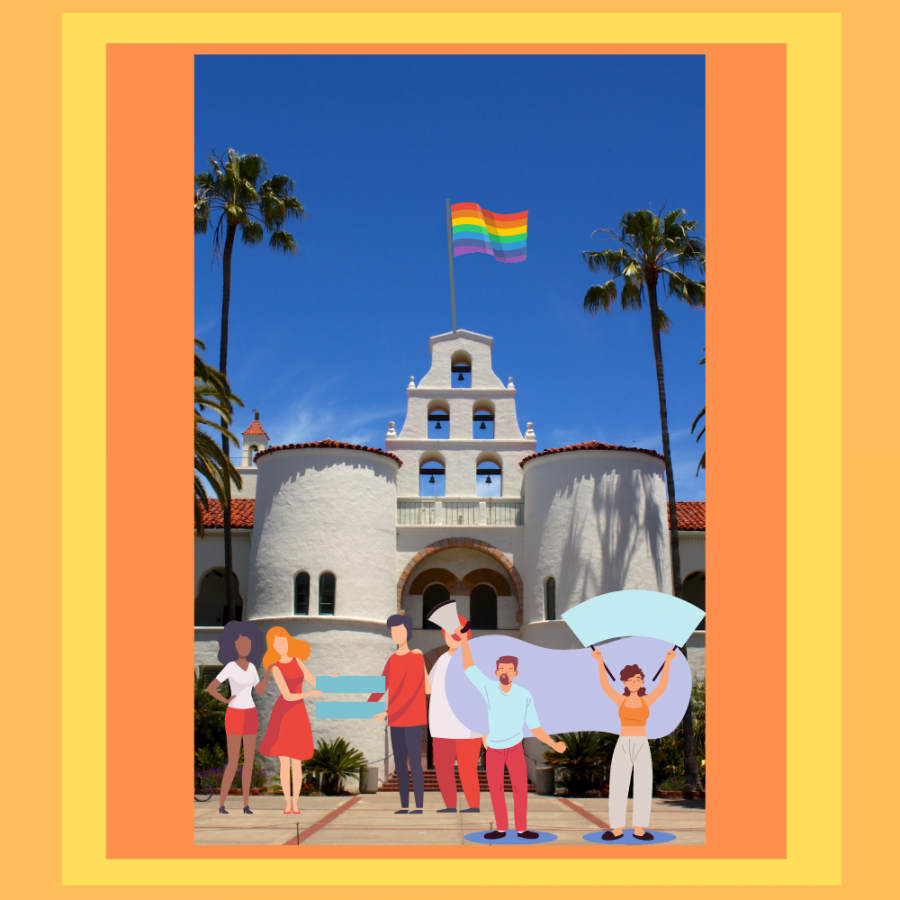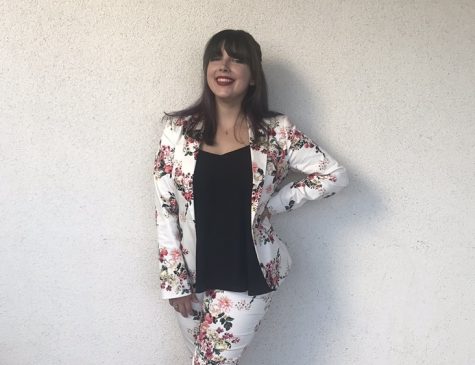It’s no secret that 2021 is set to become the worst year for legislative attacks against LGBTQ+ people.
Viral videos have circulated of trans elementary school children practically begging state legislatures to not pass anti-trans laws. It’s equal parts heartbreaking and infuriating to watch children that young have to fight for their lives.
Advocating and protecting LGBTQ+ people shouldn’t only come about when its severe attacks against us and our rights are on the line. LGBTQ+ people of all ages need different kinds of support, and at the college level, that is no exception.
Some schools and some states are better at this than others. For many years, San Diego State has consistently been a top-ranked school for the LGBTQ+ community.
In so many ways this is true. We have the Pride Center, Lavender Graduation and a LGBTQ+ Studies program for students to take courses in. I chose and transferred to SDSU for these reasons because there was no way I was going to a school that didn’t openly support the LGBTQ+ community. According to previous Associated Students Executive Officers, the school has been this way for many years and has progressed in its active support for the LGBTQ+ community.
Rob DeKoven was the Associated Students President from 1979-80. He has also been a longtime advocate of the LGBTQ+ population, currently helps sponsor SDSU’s Lavender Graduation for LGBTQ+ students and allies and in 2018 he donated one million dollars to the school’s Pride Center and LGBTQ+ Studies department.
“SDSU leads with a Pride Center and with a huge cadre of openly LGBT faculty and staff,” DeKoven said.
And don’t get me wrong. The Pride Center has been an amazing space for me to spend my free time and meet other queer students. Their Queer Coffee Hour and Virtual Front Desk have been crucial to my mental health when I have time to drop in.
But I think SDSU can do even better.
When it comes to intersectionality, there are LGBTQ+ students that have many different aspects of their identities that face oppression and need to be advocated for. Not every queer person on our campus encounter the same experiences, and some of those experiences need to specifically be talked about and addressed.
I have been at SDSU for three spring semesters, which means I have voted in three student government elections. Every single time, I watch students get up on a stage (virtual or not) and talk about how they will advocate for students and stand up for those of all communities on campus. Yet, every single year not a single one will actively address the issues LGBTQ+ students face, especially LGBTQ+ students of color.
Every single spring, I watch LGBTQ+ students get left out of the conversations about advocacy. Their struggles are never discussed on the debate stage and it feels discouraging to vote in elections where no one identifies as a member of my community. It would be tolerable if LGBTQ+ students simply weren’t running in that election but the candidates who did run actively and publicly educated themselves about our community and showed up for us.
It gets exhausting to constantly advocate for ourselves. I honestly cannot remember seeing an openly LGBTQ+ A.S. executive officer in the last three years. However, an executive officer should not have to be a public member of the LGBTQ+ community to advocate for them. Allyship expands beyond specific identities and needs to include everyone. And considering a huge amount of the LGBTQ+ community are still not publicly out, people should never feel forced to come out if they don’t want to, especially during student government elections. They should be free to speak about LGBTQ+ issues and be involved with supporting the community without feeling like they have to publicly come out before they’re ready.
As another year comes to an end and new faces will take office, I truly hope this is the year things change. Movements for advocacy and activism grow every year, and it’s time that our straight allies step up. Whether you look on-campus at the Pride Center, or off-campus like at the Human Rights Campaign, there are a thousand resources available.
LGBTQ+ students deserve to be represented and have our rights defended, and it is draining to feel like it’s always left up to us, and us alone. Listen to us, amplify our voices, educate yourselves and please stop ignoring us in the conversations about advocacy and equity.









